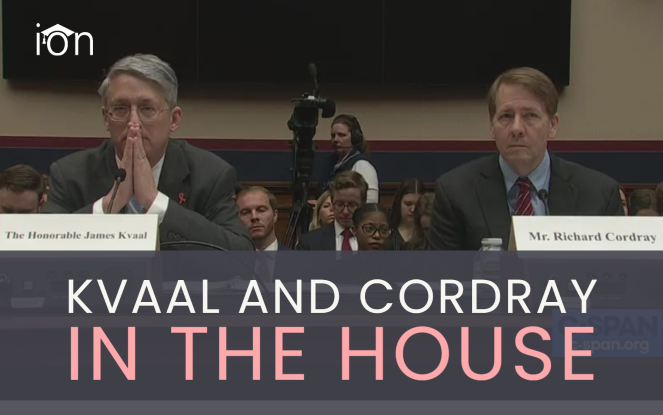Department of Education Testifies to House Subcommittee and Secretary James Kvaal and Federal Student Aid COO Richard Cordray certainly represented the Department of Education (ED) during the second House Higher Education and Workforce Development Subcommittee hearing on Wednesday.
The hearing covered the Biden administration’s student loan policies and whether ED has the legal authority to implement recent regulations.
On the Return to Repayment
Kvaal and Cordray said they would assume personal responsibility for a smooth return to repayment. ED recently reduced its budget to pay servicers, which will lead to reduced hours for borrowers and call their Federal servicers.
Cordray encouraged financially stable borrowers to enroll in FSA’s auto-debit program to avoid missing payments. For borrowers who may struggle with repayment, Cordray encouraged them to enroll in income-driven plans.
ED recognizes the challenge of preparing borrowers to return to repayment.
“Ahead looms the unprecedented task of returning tens of millions of borrowers to repayment after a pause that was extended multiple times during the pandemic,” Cordray said. “Everyone with a stake in this upcoming event — schools, servicers, advocates, and public officials like yourselves — can help us drive these key messages in the months ahead.”
On Student Loan Forgiveness
Kvaal’s opening remarks indicated he is confident that ED has the legal justification for Biden’s one-time cancellation proposal, currently in legal jeopardy and awaiting a Supreme Court decision.
“Now as we wind down pandemic programs, the department is committed to helping borrowers return to repayment without suffering delinquency and default,” Kvaal said. “That starts with the secretary’s plan to cancel up to $20,000 in student debt. Nearly 90% of eligible borrowers live in households earning less than $75,000 a year. As the Supreme Court considers this program, tens of millions of borrowers are eager for clarity.”
On Fresh Start
The Fresh Start initiative would allow defaulted borrowers to reenter repayment in good standing and reinstate their ability to take out financial aid. ED reinforced the purpose of the initiative is to help borrowers return to school to complete their degrees. Upon completion, borrowers would be in a better financial position to repay their debt.
“I speak to borrowers who have loans in default, and they talk about the tremendous consequences it has on their lives and their ability to save to buy a home,” Kvaal said. “We need to look at the challenges for people who have been left worse off for attempting to go to college or attempting to provide for their families, and offer relief to those struggling borrowers.”
On Gainful Employment
ED recently proposed new gainful employment regulations for greater financial value transparency. The Committee gathered concerns that the regulations may become discriminatory and accused ED of targeting for-profit institutions. ED countered that the purpose of gainful employment regulations is to generate higher-value programs for minority students.
“The goal of the gainful employment rule is to create better choices for students,” Kvaal said. “And that’s especially true for low-income students, first-generation students, [and] students of color, who are disproportionately likely to be left with debts they can’t afford to repay. We believe it will improve the value of programs. And we’re listening very carefully to affected communities as we consider comments on our proposal.”
The hearing was the first of a series of hearings on student loan issues. The subcommittee is expected to release a report on its findings later this year.
Subscribe to our blog so you’ll stay up-to-date:

